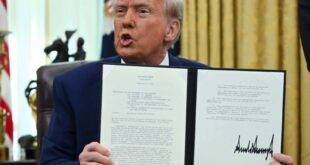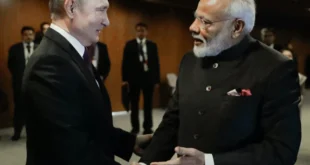Eng. Saleem Al-Batayneh
Although the upcoming parliamentary elections are not close, the repercussions of the new election law have commenced. Apparent enough is the narrow-mindedness in the distribution of electoral constituencies and the assigned seats. Misperception will befall the upcoming electoral landscape, which will indubitably touch upon both demographic and tribal dimensions in Jordan, particularly in the provinces of Irbid and Zarqa which are the largest governorates in area and population.
Electoral representation through the population census is a fundamental principle of democracy that reflects the transparency of legislation. The development of electoral laws for political and illegal purposes quivers the pillars of reform and institutes a foremost disparity and discrepancy within the Jordanian community. It is ordinary to see the fragility of the political class as a result of many years of desertification (marginalization) and constraints imposed against any political action because of the ubiquity and omnipresence of state mind.
The deficiency of truth and publicity is considered one of the most prominent reasons for the ostracism of the legislative progression in Jordan due to weak political culture of ignorance regarding political comprehension. Many stunning lexes and rhetoric lose their value when used opposite to their content. Jordanians still carry in their shared fancy a very bad idea about elections. A precedent by extensive forgery operations set by purely clientelist benchmarks.
It is ludicrous that five million voters distributed among 18 constituencies have 97 seats, and twenty thousand voters have 41 seats! It is also intolerable and unreasonable for us to reduce 30% of the seats in the local constituency in favor of parties whose members do not exceed 20,000. That is, we are witnessing a negative deviation in representation.
Thus, it is political naivety to say that reform steps will be determined through parties. It does not reflect the reality of the situation and its components. There are many ordeals and obstacles that prevent the Jordanian parties adhering to their duties and carrying out their roles in the Jordanian community, exiling them from being the core. The constituencies are the electoral arena, and the concern about the high rate of boycotting the elections will remain present for many reasons, exacerbated by the low level of representation in the local constituencies, fearing that the government will resort to the same old strategies to gust the participation rate to the lowest levels. All previous election laws were designed to ensure the engineering of the elections by providing unequal opportunities.
The outputs of the political modernization system are not a law for political action, but rather a vision like other notions that are subject to revision where protection from criticism is not guaranteed. Countries that work on political and economic reform need political generations that are neither adolescent nor fragile, who are politically mature.
Improving the toxic public environment is a prerequisite and necessary for the success of any upcoming elections; political stability will lead to motivating citizens to participate and achieve integration.
The two decisive elements in the credibility of any elections is the level of participation, and the presence of an organized legislative framework on the roadmap to ensure no violation to the electoral process. Thus, the level of participation helps achieves popular sovereignty, and the organized legislative framework deepens confidence in the turnout and fortifies the political decision at a later stage.
The question about the electoral law and the distribution of constituencies leads us to the most important question: What is the next political scenario? What are the conditions? The principle is that no electoral law has a political reading that serves the liquidation of the Palestinian cause or affects the identity of the Jordanian state.
Polls show us that the country is moving towards a mysterious reality! When insisting on pursuing a vague and ambiguous political path, the consequences are often counterproductive.
We firmly believe that Palestine resides in the heart of every Jordanian, and it is not difficult to carry out real political reform that takes into consideration the concerns of liquidating the Palestinian cause and resettlement as the identity debate serves only Israel.
Certainly, the WikiLeaks documents and the messages of the US Embassy in Amman regarding the idea of equal political rights bring us back to the controversy of Palestinian representation in the Jordanian Parliament, and the accompanying controversy related to settlement and an alternative homeland by emptying the population of the West Bank and liquidating the Palestinian cause.
The United States, along with Israel and the neo-Abraham dealers, encourage the idea of political reform in Jordan to open the door wide for the great Palestinian component to be absorbed into Jordanian politics; thus, realizing the alternative homeland project. As the proclaimed and clandestine developments denote the availability of apposite circumstances for arrangements that may lead to ending the Palestinian cause by facilitating certain schemes and settlements to impose a fait accompli.
We are about to dive into the mire of doubt and skepticism! Inevitably, facts have changed in the Jordanian political sphere. A quick glance at the event and meeting maps is enough to astound us despite all the uncertainty and ambiguity. The rapid changes and events resonate many disturbing signs and gauges.
Al-Batayneh is a former Jordanian deputy
 Geostrategic Media Political Commentary, Analysis, Security, Defense
Geostrategic Media Political Commentary, Analysis, Security, Defense





